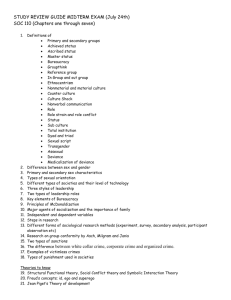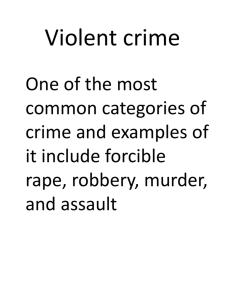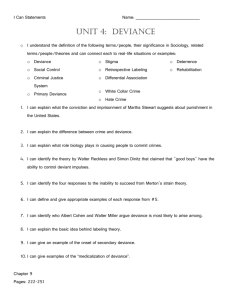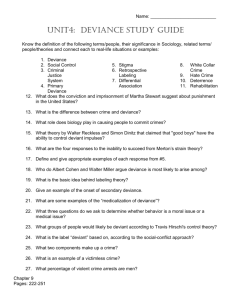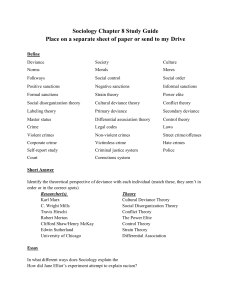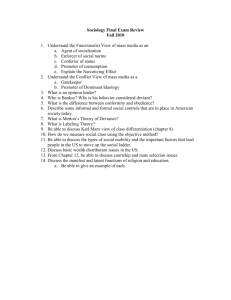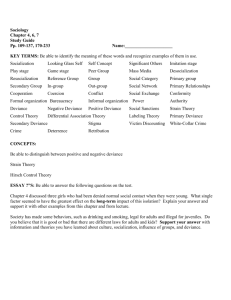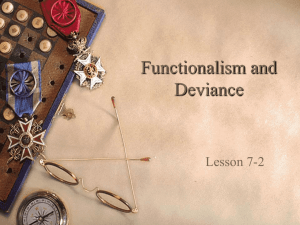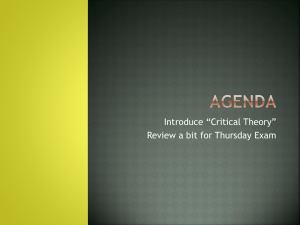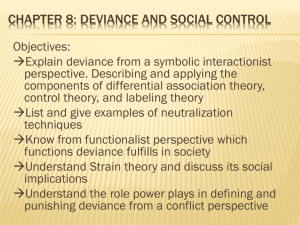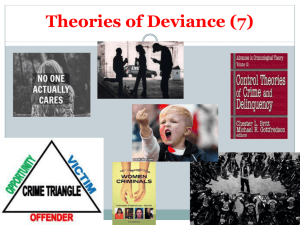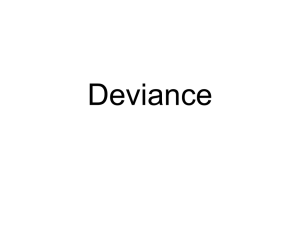Ch. 6 Deviance and Social Control
advertisement
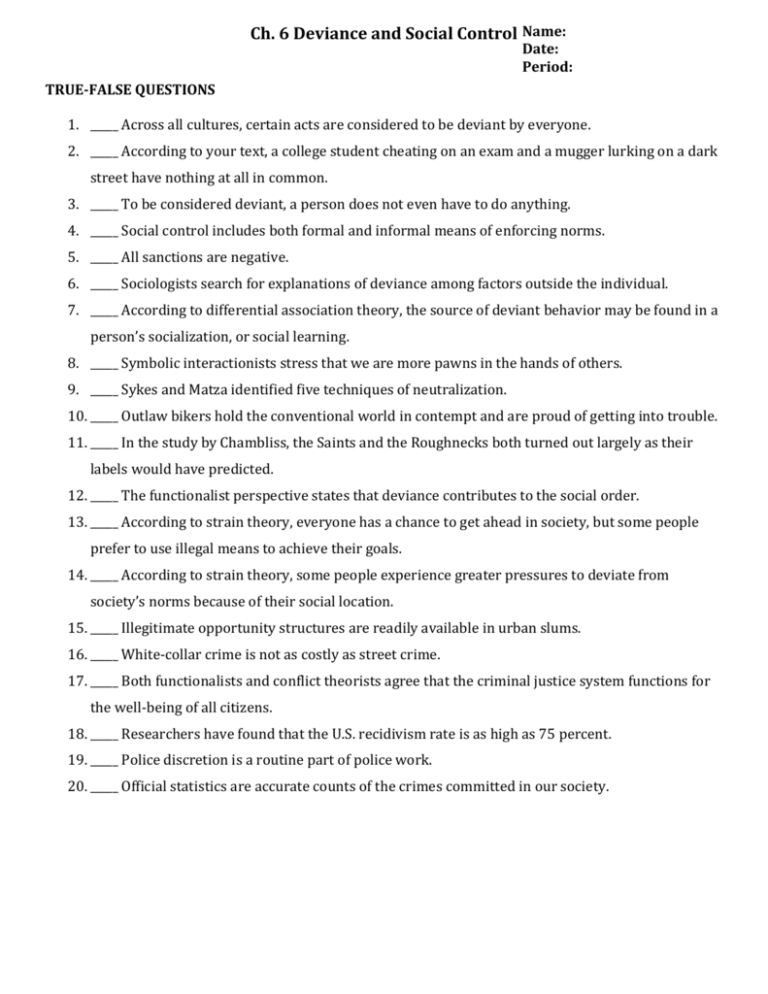
Ch. 6 Deviance and Social Control Name: Date: Period: TRUE-FALSE QUESTIONS 1. _____ Across all cultures, certain acts are considered to be deviant by everyone. 2. _____ According to your text, a college student cheating on an exam and a mugger lurking on a dark street have nothing at all in common. 3. _____ To be considered deviant, a person does not even have to do anything. 4. _____ Social control includes both formal and informal means of enforcing norms. 5. _____ All sanctions are negative. 6. _____ Sociologists search for explanations of deviance among factors outside the individual. 7. _____ According to differential association theory, the source of deviant behavior may be found in a person’s socialization, or social learning. 8. _____ Symbolic interactionists stress that we are more pawns in the hands of others. 9. _____ Sykes and Matza identified five techniques of neutralization. 10. _____ Outlaw bikers hold the conventional world in contempt and are proud of getting into trouble. 11. _____ In the study by Chambliss, the Saints and the Roughnecks both turned out largely as their labels would have predicted. 12. _____ The functionalist perspective states that deviance contributes to the social order. 13. _____ According to strain theory, everyone has a chance to get ahead in society, but some people prefer to use illegal means to achieve their goals. 14. _____ According to strain theory, some people experience greater pressures to deviate from society’s norms because of their social location. 15. _____ Illegitimate opportunity structures are readily available in urban slums. 16. _____ White-collar crime is not as costly as street crime. 17. _____ Both functionalists and conflict theorists agree that the criminal justice system functions for the well-being of all citizens. 18. _____ Researchers have found that the U.S. recidivism rate is as high as 75 percent. 19. _____ Police discretion is a routine part of police work. 20. _____ Official statistics are accurate counts of the crimes committed in our society. Ch. 6 Deviance and Social Control FILL-IN-THE-BLANK QUESTIONS Name: Date: Period: 1. Sociologists use the term _________________________ to refer to any violation of a norm. 2. Expressions of disapproval of deviance are called _________________________ sanctions. 3. Psychologists focus on abnormalities within the _________________________ of the individual. 4. Researchers have found that delinquents are more likely to come from __________________________ that get into trouble with the law. 5. Travis Hirschi noted that the stronger bonds are with society, the more effective our _________________________ controls are. 6. Sykes and Matza found that there are five techniques to _________________________ one can use to deflect society’s norms. 7. According to the functionalist perspective, deviance promotes social _________________________. 8. An innovator _________________________ cultural goals and rejects institutionalized means. 9. According to Robert Merton, people who experience social strain, are likely to feel _________________________, a sense of normalness. 10. Martha Stewart is an example of someone who committed _________________________ crime. 11. A major change in the nature of crime is the growing number of _________________________ offenders. 12. _________________________ was a well-intended law that had unintended consequences. 13. In the United States, the _________________________ rate – the percentage of former prisoners who are rearrested – is extremely high. 14. Thomas Szasz argued that mental illnesses are simply _________________________ behaviors. MATCH THESE SOCIAL SCIENTISTS WITH THEIR CONTRIBUTIONS 1. Edwin Sutherland a. strain theory 2. Robert Merton b. embracing the deviant label 3. Erving Goffman c. degradation ceremonies 4. Thomas Szasz d. white-collar crime 5. Howard Becker e. definition of deviance 6. William Chambliss f. effects of labeling 7. Graham Sykes & David Matza g. importance of stigma 8. Travis Hirschi h. techniques of neutralization 9. Harold Garfinkel i. myth of mental illness 10. Mark Watson j. inner controls
